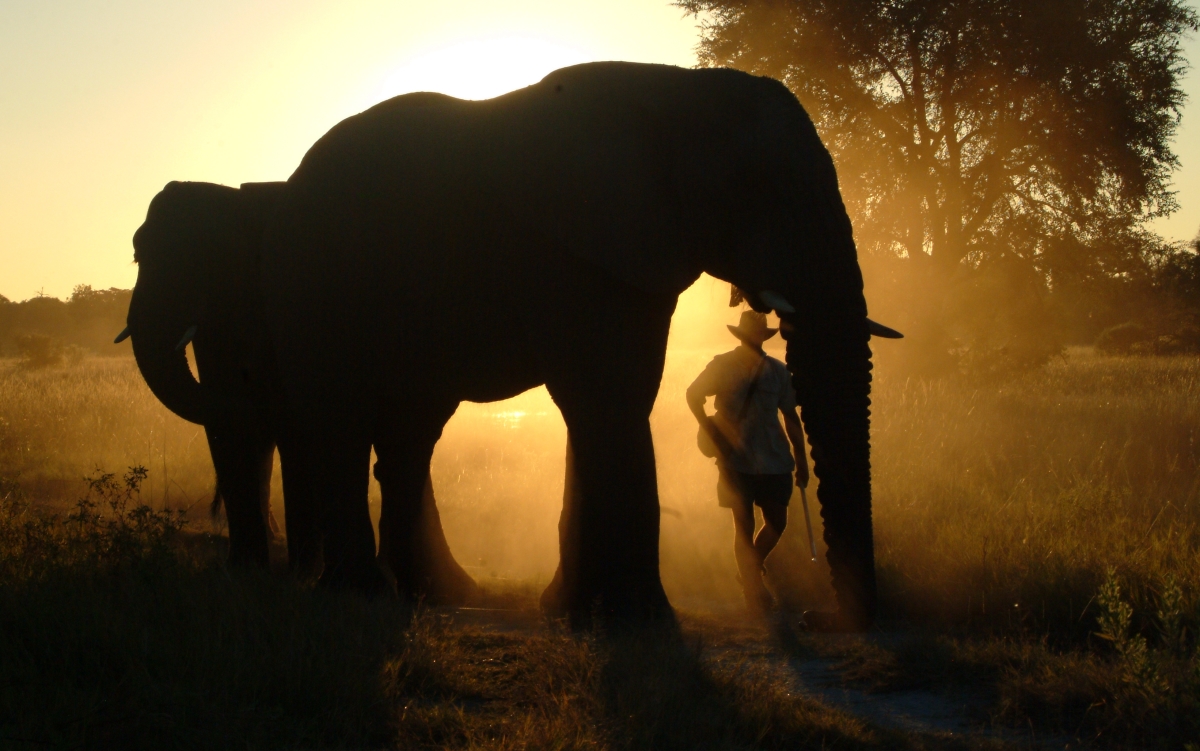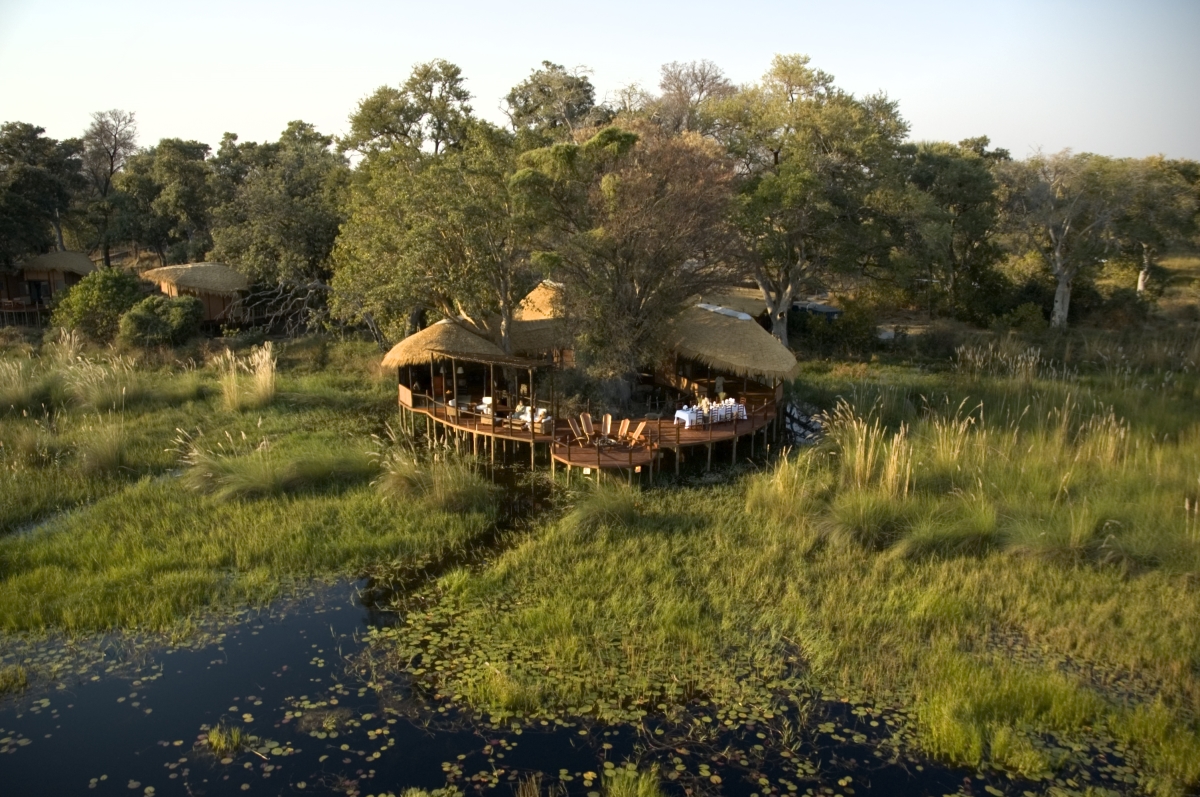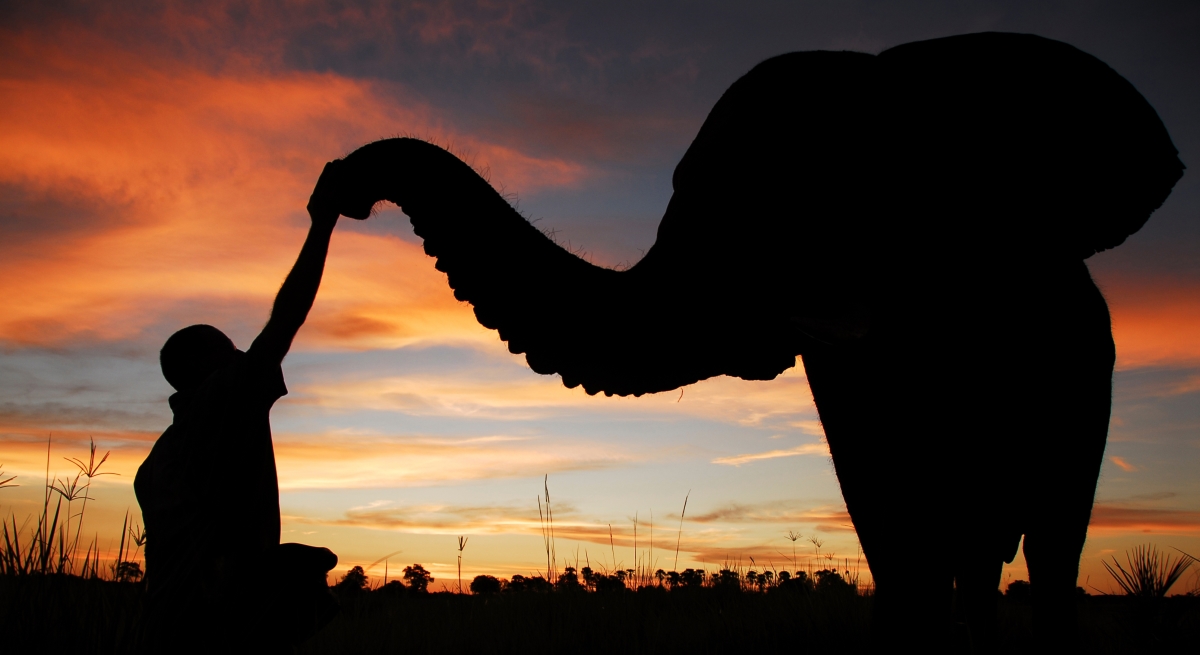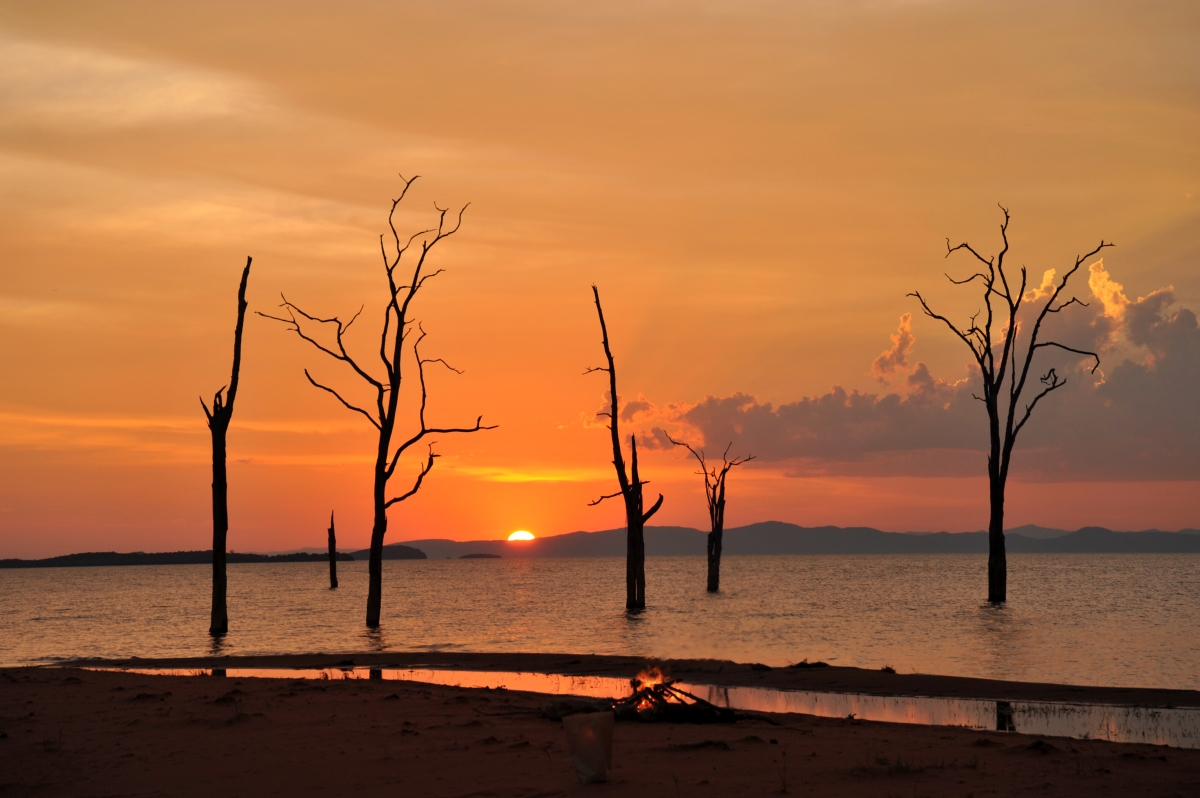
Forget gazing at animals from the comfort of a jeep – today’s African safari experiences are all about touring with a conscience. Sue Watt, an expert panel member of SafariBookings, unveils the continent’s eco-tourism pioneers.
In Swahili, the word ‘safari’ traditionally means ‘journey’, but it has become synonymous with images of jeeps driving across Africa’s sweeping savannahs, home to stampeding wildebeest, majestic elephants and prides of lions. Today’s luxury safaris, however, are offering journeys of a different kind.
Instead of passively watching wildlife, travellers can join conservation activities ranging from rhino translocations to habituating gorillas to patrolling with anti-poaching units. Luxury now is as much about experience as exclusivity – it’s about inspiring a connection between you and the natural world. Often, it’s about inspiring your inner philanthropist, too, intending that new connections will lead to much-needed donations for conservation and community projects.
Shelley Cox, ambassador for leading conservation and luxury tourism company Great Plains Conservation, believes that while guest involvement in these projects is vital for raising awareness and encouraging broader global responsibility and financial support, it does involve complex issues. “The term ‘sustainable tourism’ is used frequently now, and can often focus more on the needs of tourists than on the deep-rooted conservation aspects, socioeconomic problems and needs of the communities themselves,” she says.

There are plenty of examples. Projects offering walking with lions or riding elephants have nothing to do with conservation, and village visits can potentially be intrusive voyeurism rather than allowing a genuine understanding of different cultures. Thankfully, there are authentic sustainable experiences that go beyond simple money making and pandering to the increasing demand for traveller kudos.
Together with like-minded company andBeyond, Great Plains Conservation runs the Rhinos Without Borders program, translocating 100 rhinos from South Africa, where poaching is rife, to the safer environs of Botswana. Guests who are willing to become large donors are able to join their rhino relocation adventure, having hands-on involvement in the translocation and exclusive access to the experts involved while enjoying a luxury safari and helping the survival of rhinos.
Tourism has also played a significant role in the survival of rare mountain gorillas, hailed as one of Africa’s greatest conservation successes. Visitors spend one precious hour with our primate cousins in the rainforests of Rwanda and Uganda, with permit fees contributing to their protection and to the communities living nearby.
The Uganda Wildlife Authority (UWA) has recently taken gorilla safaris a step further, providing a new four-hour experience in Bwindi Impenetrable National Park, which involves tracking semi-habituated groups, ones that are used to their trackers but not to strangers. This encounter helps the habituation process as the gorillas become familiar with seeing different people and, at US$1,500 (about A$1,878), it helps the conservation coffers, too. But visitors also benefit. “We wanted to offer something more enriching than regular tracking,” Pontius Ezuma, UWA’s conservation manager explains. “Things like gorilla behaviour, what nests look like, collecting samples for analysis, finding their trail.”


In Botswana’s Okavango Delta, travellers can get up close and personal with elephants – without riding them. Orphaned through culling in South Africa, Jabulani and Morula were brought up by zoologist Doug Grove and now live in Sanctuary Retreats’ private concession. Guests at the luxurious Baines’ Camp or Stanley’s Camp can walk with them, trunk-in-hand, and learn all about elephants.
It’s a deeper, more immersive experience and, with the gorillas often being less docile than fully habituated ones, it’s an edgier experience, too.
In Rwanda, luxury operator Wilderness Safaris has just opened the beautiful Bisate Lodge near Volcanoes National Park, aiming to influence the bigger picture of conservation. With evening presentations and on-site gorilla experts, visits to local markets and farms, and an invitation to plant trees in their massive reforestation project (more than 15,000 trees have been planted to date), they wanted to offer something beyond what they term ‘the gorilla express’. Wilderness Safaris chief operating officer, Grant Woodrow, says: “We hope Bisate will make a dramatic impact, not just on the critically endangered mountain gorillas but also the entire ecosystem of the Virunga Massif and the rural people living adjacent to it.”
In Botswana’s Okavango Delta, travellers can get up close and personal with elephants – without riding them. Orphaned through culling in South Africa, Jabulani and Morula were brought up by zoologist Doug Grove and now live in Sanctuary Retreats’ private concession. Guests at the luxurious Baines’ Camp or Stanley’s Camp can walk with them, trunk-in-hand, and learn all about elephants. Their fees support Living with Elephants, a grassroots charity working to alleviate human wildlife conflict by introducing local children to the pachyderms, helping them understand their behaviour and teaching them the importance of conservation.

Africa’s elephants and rhinos face ever-increasing threats from human wildlife conflict and poaching. In Zimbabwe, guests can gain an insight into protecting wildlife by spending a day with the Bumi Hills Anti-Poaching Unit, patrolling with rangers, disarming or confiscating snares and traps, and noting animal locations.
“Obviously, the safety and security of our guests and rangers are paramount,” Nick Milne, trust manager for the Bumi Hills Foundation, explains. “And there are operational security risks: information on patrol times, locations, ranger identities and discoveries are all potentially damaging if they get into the wrong hands. So we’re very strict on who we allow to take part and on protocols to be followed.
“Although conservation activities are brilliant for creating awareness of what we do, we can’t guarantee they’ll happen. They can’t interfere with our primary objective, which is to protect our habitats and wildlife.”
Africa’s wildlife is, after all, the reason we travel on safari – and any safari activity worthy of the word sustainable must put that first.



